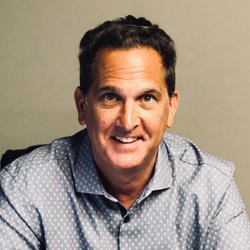A resilient return to normal, whatever that means
A year ago, we faced many new challenges as the coronavirus threw the world into a panic. Many unanswered questions made us fearful of both the known and the unknown. Despite this heightened level of stress, we adjusted, and new approaches to cope with the pandemic arose.
We Zoomed from room to room, and country to country, without having to pack our bags or experience jet lag. We found a new dress code for our virtual meetings: mullet outfits with “business on the top, party on the bottom,” and made sure to turn off the cat filter. Masks became more than just a protective measure: They became a fashion statement, or an advertisement or promotion for a business, product or cause. For some of us, reality TV became an escape: Joe Exotic was anointed the “Tiger King,” as the mystery of who killed Carole Baskin’s husband still lingers. Speaking of lingering, some of us put on the pandemic pounds as we binged on series and food.
All of the changes emerging from the pandemic are linked to our human need to stay connected during times of adversity. Fads are an expression of belongingness. Sadly, the social deprivation that we all experienced left a hole in this fundamental human need for contact and connectedness. As we had to increasingly remain socially distant, our need for emotional connectedness grew stronger.
As an attorney and practicing psychologist, I witnessed firsthand how many of my attorney colleagues reported on social media feeling stressed. This was a shocker, as attorneys are known for being loath to admit they struggle. I felt a call to action, and started offering resiliency training over Zoom to my fellow attorneys. Little did I know that this group would offer me support as I mourned the passing of my father during the pandemic, when public gathering was prohibited. The Virtual Lawyers Lounge continues to be relevant, and is more than 500 members strong.
The pandemic was a rare event in which human distress was universal, as we learned early on that Covid-19 does not discriminate. Our common experience of living through the pandemic created a space for empathy across the world, even if we couldn’t give a hug or wipe a tear for those who needed it the most. The buzzword born out of our universal experience is resilience: the ability to overcome adversity. By our evolutionary nature, resilience is tied to our need to survive. We survived by finding new ways to connect. These new ways should not be forgotten, but rather incorporated into our “new normal,” whatever that is.
As we venture into the new normal, I envision a world of hope and reprioritized values. For a resilient march to this new normal, we must acknowledge that much of what we believe in having control over is just an illusion; we need to remain present in all that we do and appreciate the temporary nature of all circumstances.
When the inevitable, unpredictable event happens, embracing it with optimism, fortitude and courage helps us through the rough patch and aids us as we move forward to where we want to be. Most important, in the resilient march to the new normal, we must never forget the need and value of hugging one another, rebuilding our personal connections, wiping away a tear and offering an approving smile that may be seen with or without a mask.
As of this writing, 2.65 million people across the world have died because of the coronavirus. In honoring those we lost and keeping alive the lessons learned, we must become more vigilant about tending to our health, physically and mentally.
Dr. Robert Goldman is the chief psychologist and co-CEO of TLC Virtual Resiliency and an adjunct professor at Hofstra University and St. Joseph’s College. Learn more at www.tlcvirtualresiliency.com.

 50.0°,
Overcast
50.0°,
Overcast 




